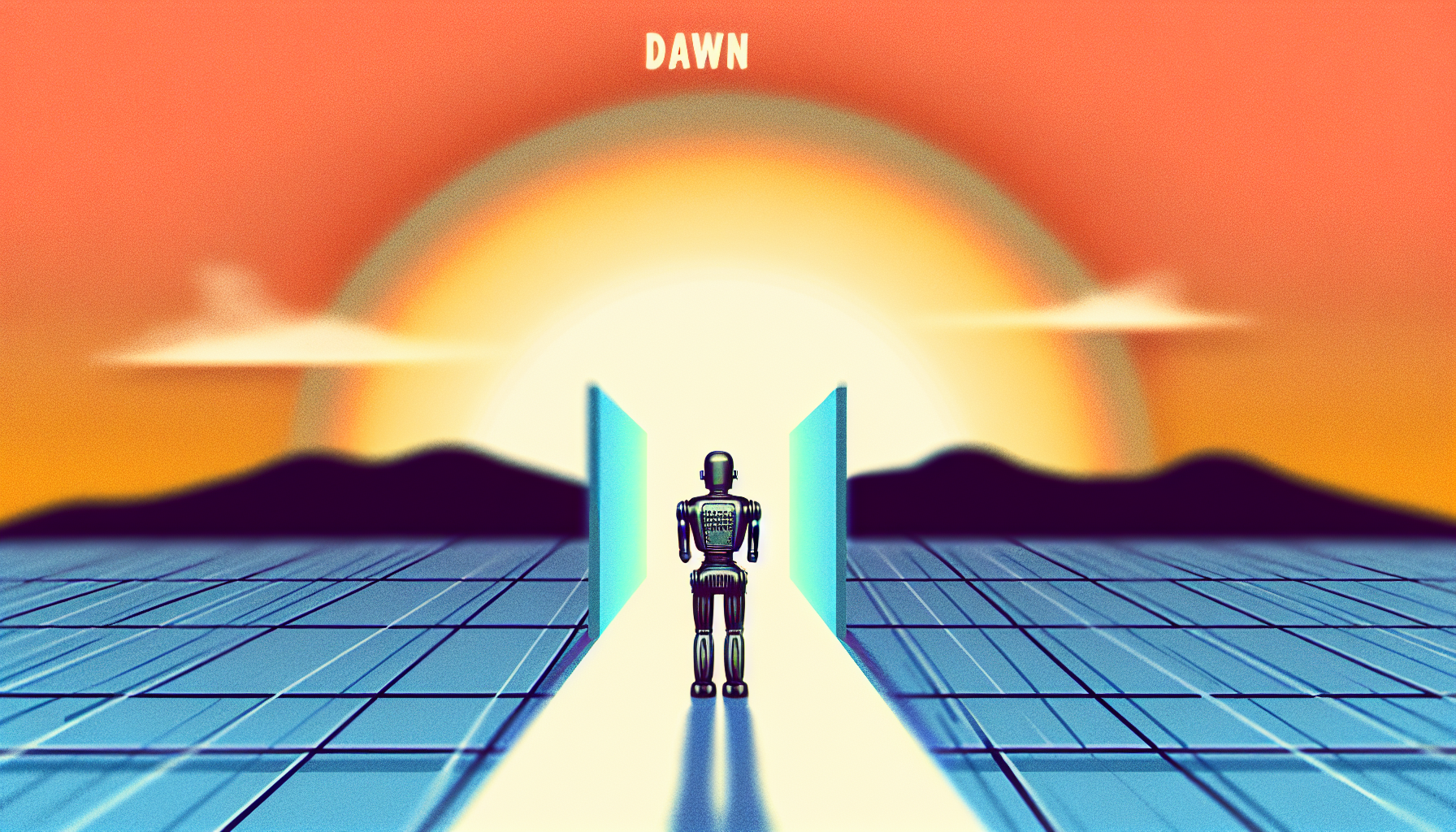The dawn of artificial intelligence has been greeted with a mix of excitement and trepidation, much like an unexpected guest at a dinner party. While we are still getting acquainted, there is an undeniable truth: AI is reshaping our world, nudging us to rethink what it means to have purpose.
Before we let our imaginations run wild envisioning AI overlords or utopian societies where robots do our laundry, let’s pause and think about something more fundamental: the concept of human purpose. It’s a notion that has kept philosophers employed for as long as there have been philosophers. With AI in the picture, things are getting even more interesting.
Where Purpose Meets Automation
Once upon a time, humans found purpose in doing the jobs that machines now handle with ease. What used to require blood, sweat, and tears can now be done by an elegant set of algorithms, often with a bit less drama. From manufacturing to data analysis, AI drives efficiency, accuracy, and speed, outperforming humans in many traditional roles.
But what if our purpose was never about the tasks themselves? Perhaps our real quest is to find deeper significance in how we apply our uniquely human traits—creativity, empathy, and the ability to make a mean spaghetti carbonara. The challenge is not to compete with AI but to coexist symbiotically, crafting new purposes aligned with a changed world.
The Age of Co-Creation
Let’s consider a notion that’s less ominous than “extinction” and more optimistic than “transcendence”: co-creation. AI complements human abilities in unprecedented ways. By embracing AI as a partner rather than a rival, we unlock the potential to innovate in fields that were unimaginable just decades ago.
Artists, engineers, scientists, educators—all can harness AI to push the boundaries of what’s possible. Imagine a painter whose canvas is augmented by AI algorithms, resulting in intricate works that surprise even the creator, or a doctor empowered by AI’s diagnostic prowess, focusing more on patient care than on paperwork. It’s a partnership, not a takeover.
Reimagining Work and Leisure
With AI shouldering routine tasks, the workplace of the future could leave more room for creativity and passion projects. Yes, there’s the hope we might finally conquer the dreaded inbox, but there’s more than that. Freed from mundane tasks, we might explore new careers, hobbies, and collaborations. The trick will be navigating the transition without impersonating headless chickens.
Leisure is where AI could really make a splash—or more of a gentle wave if you prefer a calmer image. By optimizing schedules and suggesting better life balance, AI might usher in a new golden age of human downtime. More time for thinking, pondering, and maybe a bit of that creative magic we love—such as creating viral cat videos (a peak human achievement according to some).
Revisiting Ethics and Existential Questions
Of course, with great technology power comes great ethical responsibility. AI poses questions that make existential philosophers rub their hands together with a mix of fascination and unease. Who is accountable for AI’s decisions? Can a machine possess a moral compass, and what happens if it points somewhere bizarre?
The ethical landscape is as vast as a robot factory floor, and we humans need to be the architects of its design. Establishing solid ethical frameworks can safeguard against misuse and ensure that AI serves humanity’s higher ideals, like justice and fairness, rather than an uninspired rerun of “2020: The Dystopian Chronicles.”
Conclusion: A New Chapter
In the narrative of human history, AI is emerging as the latest plot twist. It has the potential to redefine how we perceive and pursue purpose. The journey toward finding meaning will require navigating change and embracing our unique human qualities. It involves asking big questions and seeking answers that reflect not just our ambitions but our humanity.
The future is unwritten, and AI is not so much holding the pen as providing fresh ink and a lot of blank pages. In this ongoing story of humanity, AI offers a chance to think bigger, choose bolder, and act wiser. Whether you see AI as an existential threat or a partner for progress might just depend on how we manage to write this new chapter together.

Leave a Reply